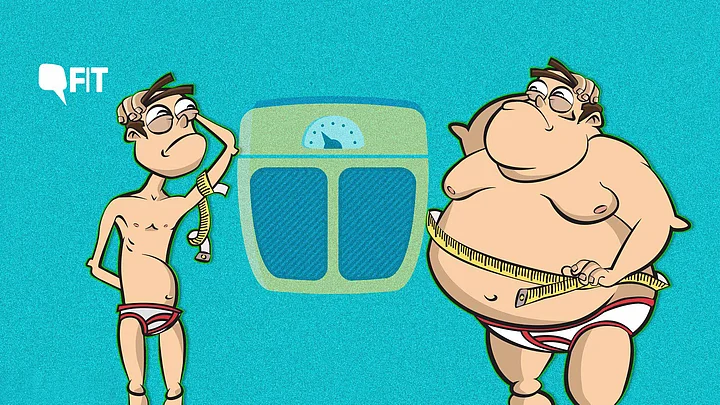A new report published by The Lancet on Monday, 16 December found that there is a new nutrition reality that we all need to face - the 'double burden' of both overweight and malnourished people living side-by-side.
The report adds that this is the result of rapid changes in our food systems, which seems true particularly for low and middle-income countries like our own - India.
Why Does This Happen?
In India, both issues individually - malnourishment and obesity - occur in spades, but a new phenomenon called ‘Hidden Hunger’ has added to this too.
This is when one person is obese and malnourished, as they have a severe deficiency of vital nutrients.
The reasons for this are multiple:
- Easier access to ultra-processed foods; there is an explosion in the availability of unhealthy foods
- People are exercising less and the general movement is much due to technology and the popularity of screen (TV, laptops, mobile) watching
- There is a new middle class with disposable income, rather than just the money to spend on essentials, there s a lot of spending on unhealthy foods
- People are moving away from traditional foods towards diets high in sugars, fats, and meat, and low in unrefined grains and beans
- We are eating fewer nutrient-rich foods and getting more calories from junk food
- And in spite of google or maybe because of it, there is a lack of the right information
It’s All Interconnected
According to The Lancet report, exposure to undernutrition early in life followed by becoming overweight from childhood onwards increases the risk of contracting a range of non-communicable diseases. This makes the double burden of malnutrition a key factor driving the rising global epidemics of type 2 diabetes, high blood pressure, stroke, and cardiovascular disease.
Of course, this affects some groups of people more than others, for example, pregnant women eating unhealthy or insufficient diets may give birth to stunted or malnourished children who are actually more likely to become overweight later in life.
What are the Solutions?
- First, we need actions that simultaneously addresses both under and overnutrition in policy solutions for them to be effective.
- Secondly, our food choices are influenced by many things, some of which we may not be aware of. They include cost, local availability, time pressures, healthily eating knowledge and the diets of people around us. The policy decisions need to focus on that.
- We need food systems that provide all people with healthy, safe, affordable, and sustainable diets. Basically we need food policies to change the food environment because this shapes the diets of the citizens of the country.
- We need an overall change in our food systems and processes - from production and processing, trade and distribution, pricing, marketing, and labeling, and a widespread information drive. These can include policies aimed at halting the growth in obesity, cutting consumption of sugary drinks and increasing fruit and vegetable intake.
There are a lot of ways to implement these solutions. Policies that offer micro-loans to farmers, reducing tax on certain fresh foods and educating children and adults on nutrition.
- Food fortification and widespread eduction (even simple skies like label reading) is definitely the way forward as they help create a default setting where the nutrient needs of people are met automatically.
- Finally, the old adage ‘don’t go by the looks’ holds true here… as you could be healthy-looking (or over or underweight) on the outside but it is the existence or avoidance of nutrient deficiencies on the inside that is actually the true test of your health status. So always keep that in mind!
(Kavita is a nutritionist, weight management consultant and health writer based in Delhi. She is the author of Don’t Diet! 50 Habits of Thin People (Jaico) and Ultimate Grandmother Hacks: 50 Kickass Traditional Habits for a Fitter You (Rupa).)
(At The Quint, we question everything. Play an active role in shaping our journalism by becoming a member today.)
